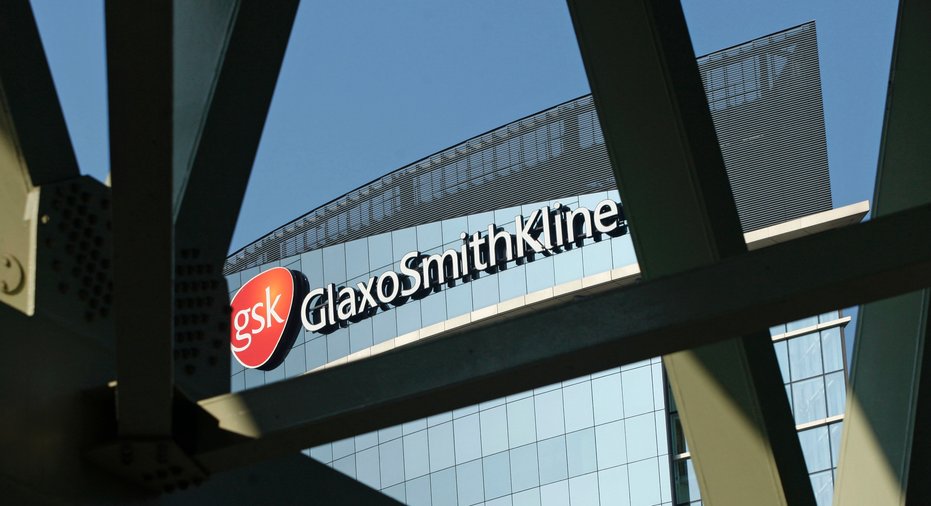Glaxo, Pfizer to merge consumer health care divisions
FILE - This April 20, 2009 file photo, shows the British pharmaceuticals firm GlaxoSmithKline in London. Drugmakers GlaxoSmithKline and Pfizer are merging their healthcare divisions, creating a business with combined sales of 9.8 billion pounds ($12.7 billion). British-based Glaxo will own 68 percent of the joint venture, while U.S.-based Pfizer will own the remaining 32 percent stake. (AP Photo/Sang Tan, File)
LONDON – Drugmakers GlaxoSmithKline and Pfizer plan to merge their consumer health businesses into what will be the world leader in sales of nonprescription medicines such as pain relievers, vitamins and cold remedies.
The new joint venture would have with combined annual sales of $12.7 billion (9.8 billion pounds).
British-based GSK will own 68 percent of the venture, and New York-based Pfizer, the biggest U.S. drugmaker, will own the remaining 32 percent stake.
The business will sell products under GSK brands like Sensodyne tooth paste, Panadol pain tablets and Voltaren pain tablets and ointment, along with Pfizer's Advil and Anbesol pain relievers, Chapstick, Centrum and Caltrate supplements, and Nexium heartburn treatment.
The companies said the joint venture will have a worldwide market share of 7.3 percent, ahead of the nearest competitor at 4.1 percent. It will have the No. 1 or 2 market share positions in key countries and regions, including the U.S., Europe, China and India, and in categories including pain relief, respiratory medicines, vitamins and supplements, and digestive health products.
The venture will operate under the GSK Consumer Healthcare name worldwide. The deal is expected to close in the second half of 2019, after which the two businesses will be integrated and packaging likely will be altered to add the GSK Consumer Healthcare name where needed.
Spokespeople for both GlaxoSmithKline and Pfizer on Wednesday said they couldn't comment yet or had no information on changes consumers might see in the combined product lineup, whether product prices might be changed and whether the new business would be developing additional consumer items.
It is expected to take three years to merge the businesses across some 100 countries as well as to wait for the uncertainties surrounding Britain's departure from the European Union to subside. The companies eventually plan to spin off the joint venture into an independent company, likely in several years, and list its stock in the U.K.
"I'm confident we'll be in a more settled environment than we are in today," GlaxoSmithKline PLC CEO Emma Walmsley said.
Some planned divestments of $1.3 billion would be expected to cover the costs of the integration. Annual costs will be slashed by 500 million pounds.
Shareholders had long pressured GSK to split up, mindful of the complexities of trying to create blockbuster drugs while selling lower-profit consumer products. But the move surprised analysts because Walmsley, who took over in April, had seemed at first to be following in the footsteps of her predecessor, Andrew Witty, in resisting such a change.
Walmsley said the deal presents a way forward for GSK to become a global pharmaceuticals and vaccines company focused on advanced technologies.
"Ultimately, our goal is to create two exceptional U.K.-based global companies with the right capital structures, both of which are well positioned to deliver improving returns to shareholders and significant benefits to patients and consumers worldwide," she said.
Pfizer, the maker of Viagra and nerve pain treatment Lyrica, meanwhile has been under similar pressure from shareholders to split up. It had been planning to exit consumer health, putting that business up for sale just over a year ago. It found no takers, but in July announced yet another minor business reorganization to occur in 2019, under the watch of Albert Bourla, who will succeed Ian Read as CEO in January.
This rearrangement will leave Pfizer with an Innovative Medicines segment that sells and develops new drugs and vaccines such as its blockbuster Prevnar vaccine, and an Established Medicines business that sells older drugs like the cholesterol pill Lipitor that have lost patent protection. The GSK deal resolves the future of the consumer health business.
Shares of Pfizer Inc. added 46 cents to $42.86 in afternoon trading, while GSK rose nearly 3 percent to $38.12.
___
Danica Kirka reported from London. Tom Murphy in Indianapolis contributed to this report.
___
Follow Linda A. Johnson at https://twitter.com/LindaJ_onPharma





















